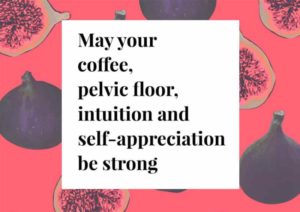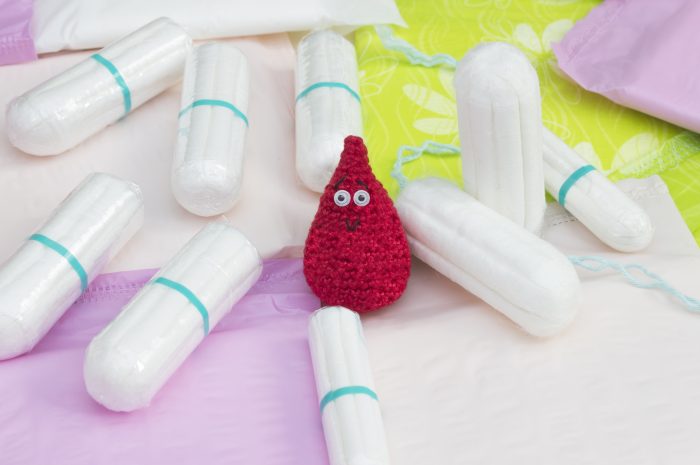
Written by Sneha Battin
The secret to a better you, comes with understanding your own body and working towards achieving it. No, I don’t mean heavy weight loss programs (pfft!) or unimaginable-and might I add painful cosmetic treatments that concentrates on the outer beauty. I am talking about the inner you. You. Your health. About feeling good and confident about yourself as a woman. About understanding your health needs to feel alive, active and most importantly- happy.
Because let me tell you, ladies, this is what the real deal is all about. About bringing the best of you in work, beauty, fashion, love and even making some of your most amazing lifetime friendships through your own health. I can almost feel your raised eyebrows here.
Let me explain… if you are happy with yourself, you tend to be happy with others. You feel like spreading love and merriment all around. For you are truly happy in your heart. How often have you smiled at random strangers on your way to work (unless you’re running late, of course, but that doesn’t count) or when you are out doing some of your weekly grocery shopping? How often do you find yourself humming a song at the top of your grating voice just for the joy of it? Or, my personal favourite, help someone you don’t know, because you feel like helping. So, ladies, it all comes down to your health. Straight and simple.
Statistically speaking, studies suggest that healthy lifestyle brings happiness and even promotes longevity. It makes you more efficient and productive in all segments of life. In today’s world we as women, have tons of health issues varying from stress, hair loss to heart diseases and cancers. But why am I telling you this? My aim here is not to scare you with the huge and ever-growing concerns that we as women might face. I want to make you aware of a not-so-known, yet a worth-able knowing concern: Pelvic floor muscle dysfunction.
What are Pelvic Floor Muscles and why is it important?
The Pelvic Floor Muscles (PFM) are a layer of muscles that are situated between your pubic bone and tailbone, stretched right across these areas and from your sides. This smartly hidden bundle consists of ligaments, muscles and nerves and are present in both men and women. Their main job for us, women, is to offer support for keeping our internal or “pelvic organs” such as bowel, bladder and uterus supported. To simply put, these muscles keep your insides stay inside!
When you contract the PFM, the opening to these organs are tightened so that nothing is released from your body. Similarly, when you need to use the toilet, you automatically relax your muscles which allows the passage of urine etc. Now, let me ask you a question. How often have you badly wanted to use a toilet and see none around? Or worse, you find one, but you don’t want to use it cause it’s absolutely disgusting. I know, happens all the time, right? So, these are the muscles that helps you control voiding when nature calls. And now you know whom to say thanks to! Oh, and that’s not their only job in case you’re wondering. They play an integral part in providing support during pregnancy and most importantly during child birth. However, like wear and tear of all other muscles in our body, these too, have the potential of detiorating over time. And not only due to its overuse, but a weak PFM could also be because of a strenuous sport, pregnancy and child-birth, over-straining, obesity or something as simple as heavy and continuous coughing.
So how will you know if you have a weak PFM?
Well, if lately, it’s getting difficult for you to control your bladder, or, everyday activities such as coughing, heart-felt laughing or sneezing- makes you rush to the nearest bathroom, then there could be a possibility that you might have weak PFM. I remember one of my patients who had visited me for a knee consultation mentioned in passing, that she avoided hanging out with her gal-friends as their silly gossips and jolly banter made her laugh so hard that she experienced small amounts of urinary leaks which she found extremely embarrassing. She reduced her outdoorsy socializing activities but missed her friends. Now, I don’t want that to happen with you girls out there, so do read ahead. If you feel like you’re unable to wait going for a bathroom, or experience reduced sensations in your vagina or feel like your tampon might just fall off, then these are the signals to pay attention to. In extreme conditions, such as a prolapse, you might experience feeling heavy down there or might feel a bulge at the bottom. This is due to one of your organs being moved from its normal position occurring because of a worn-out PFM.
Some women often find intercourse post-pregnancy a bit worrying. Anxiety related to pain, sexual gratification and self-doubt regarding their own bodies and worrying for the new bundle of joy in their lives makes them apprehensive. During my time attending to young mothers for their post-natal-care treatments, they would often ask me if they would be able to keep their partners “content”- their distress associated with fears of a changing body, especially after a vaginal child-birth. But it’s not just about their gratification, ladies. These muscles are for your gratification as well. Having strong PFM increases sensation and heightens experience for both men and women.
So now that you know that these muscles are quite important, it’s time now to introduce the exercises. Often famously known as Kegel’s exercises.
A simple know-how guide:
- Finding the right muscles: The first step would be in asserting that you’re working on the correct muscles. Go to a toilet and stop urinating midstream. There, now that you’ve found your muscles, you can now start training them. These muscles can be worked in any position, but many find it easier to do in a supine (lying-down) position.
- Correcting the technique: Imagine yourself sitting on a ball and try squeezing them. Do it initially for 3-5 seconds at a time and then relax. And don’t forget. You don’t have to stop breathing. Maintain your normal breathing pattern.
- Focusing: For improved results, concentrate on squeezing only your PFM and avoid tightening your abdomen, thighs or buttocks.
- Repeat: Try doing three sets of 10-12 repetitions a day.
However, don’t make a habit of using Kegel’s to stop your urination mid-stream, as it might lead to incomplete emptying of your bladder and increase the risk of a urinary tract infection.
When to do your Kegels
Make these a part of your daily routine. You can do them at just about any time, sitting at your desk or even you’re relaxing on your couch.
When to expect results
If you do PFM strengthening exercises regularly, you can expect changes — such as less urine leakage — within few weeks to a couple of months. But for continued results, make them a part of your everyday routine and help your body get the confidence back again.
Author: Sneha Battin



